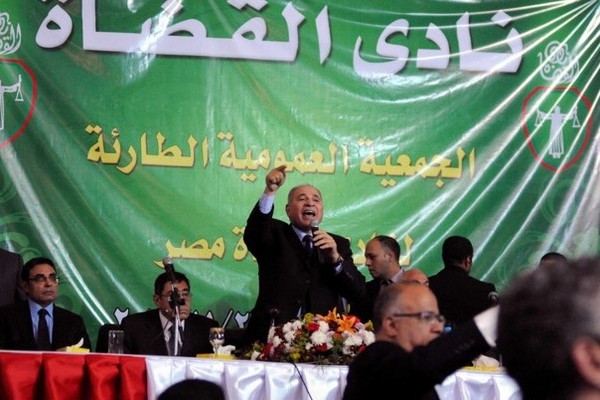JERUSALEM: Behind Israel’s tepid welcome of the popular uprisings convulsing Arab neighbors like Egypt and Syria, a long-running debate is gathering pace: Might the turmoil be enough to spur it to attack Iran?
While Prime Minister Benjamin Netanyahu has been quiet about a war option that would stretch the Israeli military to the limit, confidants say the drum of pro-democracy protests is only honing his ear to the clock ticking on Iran’s nuclear program.
The prospect of pro-Western regimes from Cairo to the Gulf falling in with Iran resonates with Netanyahu, who has cast the Islamic republic as a global menace.
Such is the sense of decisions looming, that a former Mossad spymaster’s public ridiculing of air strikes on Iran as a "stupid idea" that would imperil Israel was widely interpreted as a warning to Netanyahu to back down.
"The ‘Arab Spring’ is definitely bolstering those who argue that we’re in this alone against Iran, with all that entails in terms of planning," an Israeli government adviser said.
Spikes in the price of oil, of which Iran is a major exporter, have blunted US-led sanctions against Tehran that Israel had cautiously endorsed. The US administration’s mounting Middle East engagements have further shaken Israelis’ faith in the ability of their biggest ally to tackle their foe.
"There’s an opposing view (in the Netanyahu government), a hope that political revolution may reach Iran as well, defusing the nuclear threat," the Israeli adviser said. "But that has not been carrying too much weight."
Even were it to inflict lasting damage on Iran’s nuclear facilities, Israel would have to contend with the aftermath, from direct reprisals to border conflicts to foreign censure.
"Attacking the reactors from the air is a stupid idea that would have no advantage," Meir Dagan, a retired army general who stepped down as Mossad director in January after an eight-year tenure, told a forum of Israeli civil servants on Friday.
"A regional war would be liable to unfold, during which missiles would come in from Iran and from Hezbollah in Lebanon," he said, according to a transcript circulated to the media.
Changing of the guard
Asked about the remarks, an Israeli security official and one-time Dagan colleague said they were likely intended for Netanyahu, and to discredit the war option in public opinion.
As Mossad director, Dagan had counseled a mix of diplomatic pressure and sabotage against Iran, which denies seeking a nuclear bomb. According to the Israeli security official, Dagan’s view was shared by former chief of Israel’s armed forces Lieutenant-General Gabi Ashkenazi, who retired in February.
"With the old guard gone, and the successors still finding their place, it seems Dagan felt that there wasn’t enough of a counterweight" to Iran hawks in the cabinet, the official said.
Since Ashkenazi’s departure, the military has developed the Iron Dome rocket interceptor, billed as a bulwark to the main weapon of Hezbollah and of Palestinian Hamas in the Gaza Strip.
While Hamas is, like Hezbollah, an Iranian ally, it has an added incentive to avoid a fight with Israel in the unity pact it has been forging with the Western-backed Fatah faction as part of Palestinians’ drive to declare an independent state.
Israeli Vice Prime Minister Moshe Yaalon denied Dagan’s views would affect government decision-making. But he took the former spymaster to task for undermining the Israeli and US strategy of threatening attacks in order to deter Iran and keep other world powers serious about crisis diplomacy.
"For the Iranian regime to be persuaded to give up its nuclear capability, it has to be presented by the choice between getting a bomb and surviving, and such statements do not help present Iran with such a dilemma," Yaalon told Israel Radio.
Whatever the reality of the closed-door cabinet discussions, Netanyahu’s government has issued mixed messages on Iran.
Asked last month about the Palestinian rapprochement, Defense Minister Ehud Barak said in a broadcast interview Israel should concentrate on upgrading its "capability for operating in Iran and the ability to defend ourselves from rockets."
He shifted tone by telling an Israeli newspaper a few days later that a nuclear-armed Iran would be unlikely to attack Israel, believed to have the region’s only atomic arsenal.
Yaalon left dangling the possibility of subterfuge.
"I hope that the Iranians see an Israeli conspiracy in this. That could help," he said.

